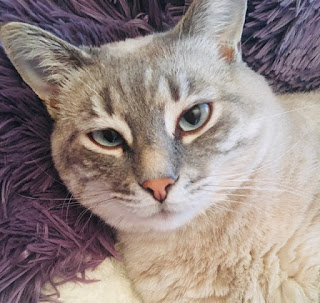I often ask myself, "How did Laura Ingalls Wilder get through hard times?" The Ingalls family didn't lack challenges. There were chatty settlers, dangerous sloughs crossings, and blizzard clouds in the Northeast. During this period of self-quarantine, I decided to reread The Long Winter to discover - What Would Laura Do?
Chapter 27 - "For Daily Bread" Part 2
We rejoin the action outside of Anderson's sod house. Almanzo says they have to care for the horses, Prince and Buckskin, before accepting Anderson's profuse offers of hospitality. Almanzo spots wheat scattered in front of a rough door, in the stable. Yes! The wheat rumor Mr "Scare the Antelope Herd" Fuller perpetuated was true.
 |
| Can you imagine all the creepy crawlies in the sod walls? My daughter refused to go out the front door yesterday because she saw a spider. |
Anderson leaves the door to his soddie ajar to let in light since he hasn't shoveled out the window. The welcomed guests are treated to a hearty meal of boiled beans, sourdough biscuits, and dried applesauce. It seems everyone is eating better than the Ingalls.
Almanzo slips buying Anderson's wheat into the conversation. Anderson says he isn't selling his seed wheat. (Hmm. Sound like anyone we know?) Almanzo explains the town of DeSmet is starving. "They've got to get something to eat or they'll starve to death before Spring." Anderson appears to be an isolationist. He answers Almanzo's plea with, "Nobody's responsible for other folks that haven't got enough forethought to take care of themselves."
I disagree with Anderson's cranky attitude. We all need each other. Where would the free-loading Masters be if Ma hadn't taken them in for the Winter? How could DeSmet survive if Almanzo and Cap didn't risk their lives to find wheat? How could the Ingalls butter their bread without Mr. Boast's gifts of butter?
Almanzo starts the bidding, without Anderson's participation, at 1.00 a bushel - 18 cents above asking. The offer makes Anderson dig in his heels. "That's my seed wheat. It's my next year's crop. I could have sold it last fall if I was going to sell it." Almanzo and Cap remind Anderson that he is not assured of a successful wheat crop. Grasshoppers and hailstones could obliterate his crop. The only thing Anderson can be assured of is money in his pocket. Cap recites, "A bird in the hand is worth two in the bush." The back and forth continues until the price reaches $1.25 a bushel. SOLD! 60 bushels of wheat.
Anderson invites the duo to spend the night, but Almanzo and Cap are eager to leave. Perhaps they are worried Anderson will change his mind about selling his wheat. Or perhaps they don't want to be trapped in a soddie with Anderson. Cap and Almanzo quickly load their sleds with
3,750 pounds of wheat. Those poor horses. (My van struggled with 10 bags of mulch.)
The boys began their dangerous journey home. Crossing the slough was treacherous. The horses and wheat kept plunging into air pockets causing more work and delay for Almanzo and Cap. "They had hardly begun to cross the flat valley when Prince broke down into an air pocket. Swinging out to circle the dangerous place, Cap's buckskin felt the snow give way under him so suddenly that he screamed as he went plunging down. The horse's scream was horrible."
The chapter concludes with Almanzo and Cap finally spotting the lone cottonwood. They also observed a blizzard cloud in the Northwest.
What Would Almanzo Do?
- Take care of business before pleasure
- Talk people into doing things they don't want to do
- Walk willingly into dangerous situations
NOTE: As I was searching for information on Anderson, I came across information supporting the claim that Almanzo and Cap never went on this mission. Join me tomorrow as I explore this claim and throw a tantrum. (I really, really want this chapter to be factual, but have serious doubts.)
Prairie Eydie



































